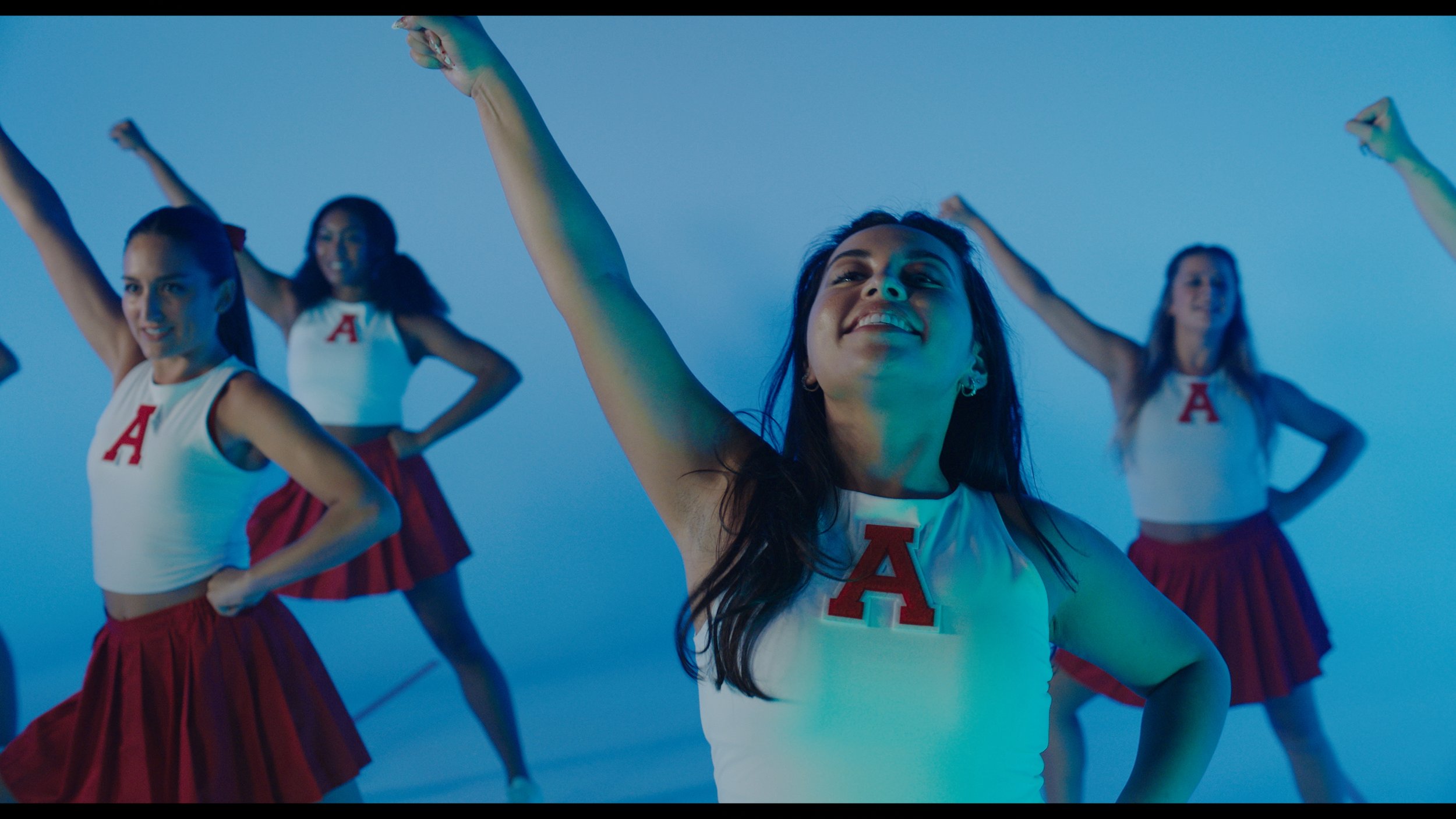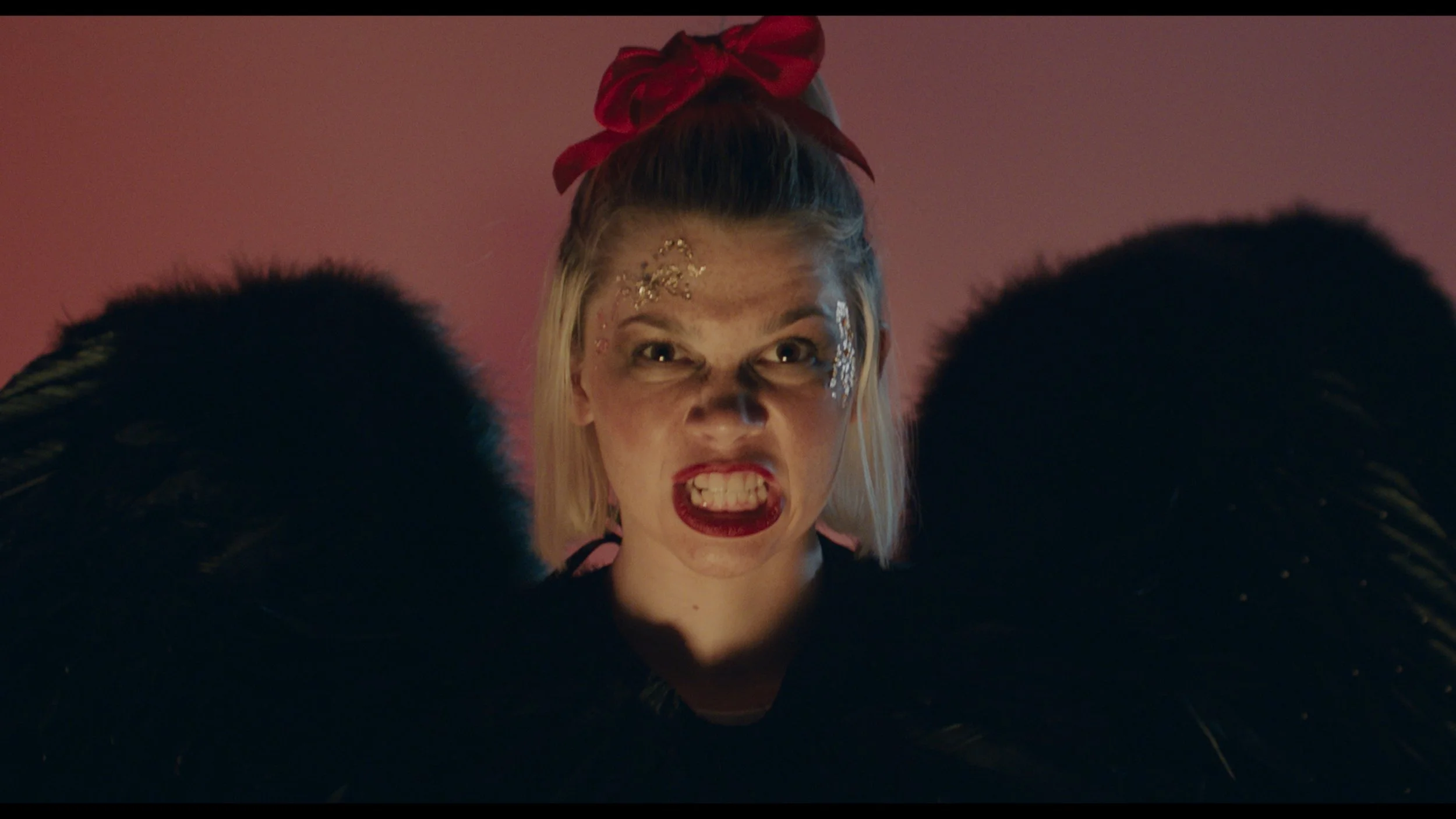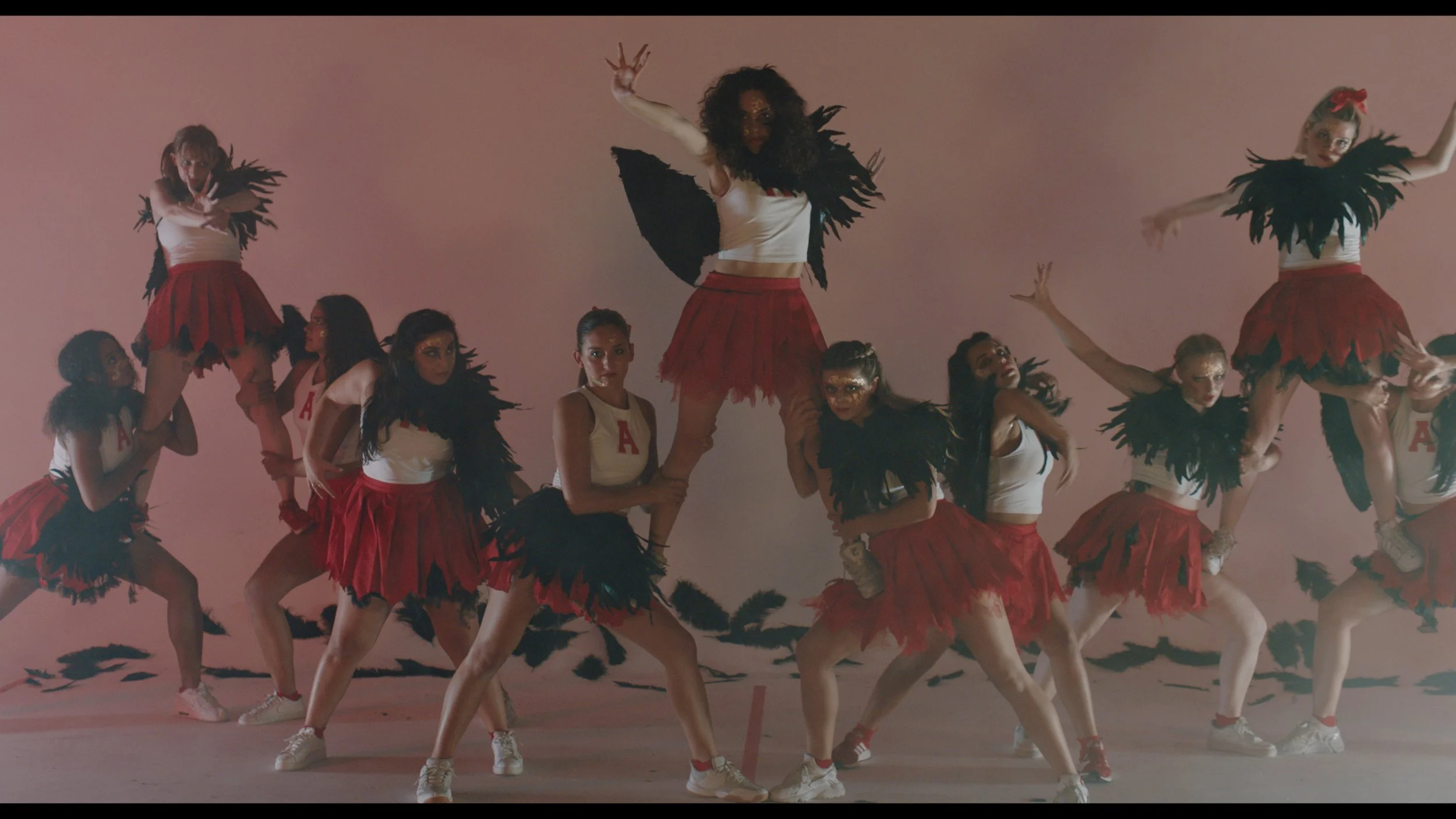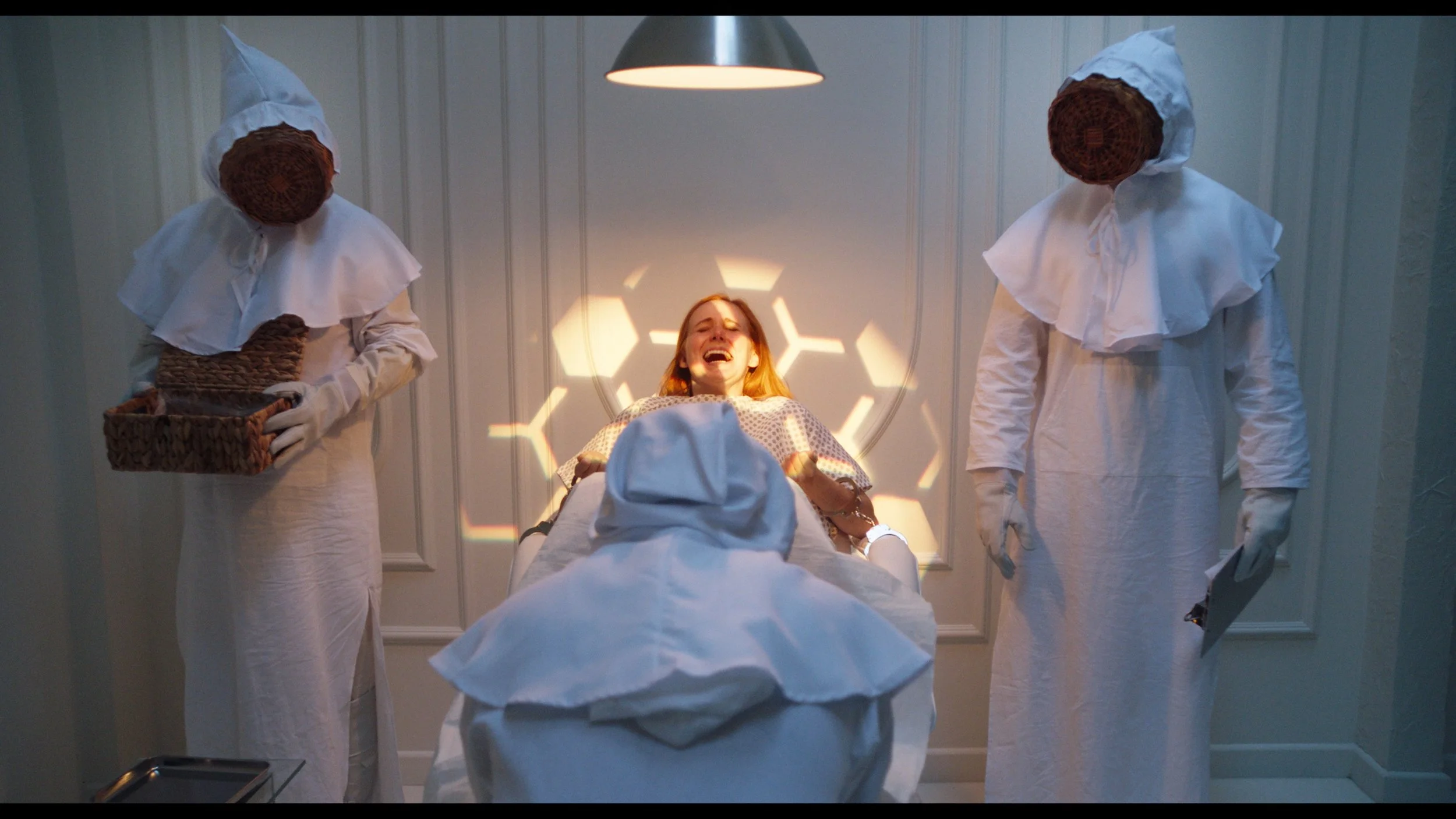Natasha Halevi, Molly Quinn, Jennifer Holland turn anguish into action through ‘Give Me An A’
The horror anthology film consists of 17 segments crafted by 16 female filmmakers, with each short film being a response to the overturning of Roe v. Wade. The film was completed less than three months after the Supreme Court ruling. Photos courtesy of XYZ FILMS
The moment was bittersweet as director, writer and executive producer Natasha Halevi and her 15 fellow female directors were proclaimed winners of the Gold Audience Award at Brooklyn Horror Film Festival in October 2022. Their feature-length anthology film, “Give Me An A,” was conceptualized and executed in less than three months as an immediate response to the overturning of Roe v. Wade.
Recognition meant eyes on their cause, but they knew a long fight to regain bodily autonomy still remained ahead.
“I can't tell you how much I wish we only had a short festival run, and then we had midterm elections, and everything was righted, but that's not what happened,” Halevi told The Panther. “This isn't ending anytime soon. Things are only getting worse and more difficult for people across the United States.”
Flashback to last July, when the female creatives were sent a link to join a Zoom call. In a conversation spearheaded by Halevi, the participants expressed their unique frustrations and grievances against the United States Supreme Court. Each of them was attempting to come to terms with the reality that access to abortion was no longer protected after the Dobbs v. Jackson Women’s Health Organization ruling signaled the overturning of Roe v. Wade the previous week.
By the end of the call, despair and anguish had turned into action. The next day, synopses were gathered. A week later, scripts were ready to go. Less than three months later, an entire anthology film consisting of 17 segments was complete and screened at FantasticFest in August 2022.
Halevi and actresses Molly Quinn and Jennifer Holland sat down with The Panther on June 23 to chat about their connections to the subject matter, the expedited timeline of the project and the melting pot of genres.
“Everything moved very quickly, but at the time, it felt like we were moving so slow – like we couldn't move fast enough. Like why couldn't we be done sharing all our ideas with the world immediately,” Halevi said. “There's so much generosity in what was made. A project being put together on shoestrings in seconds is very risky, and everyone really jumped into that risk together. We all knew that everything was working against us – time and budget – and everyone just gave such a beautiful commitment and effort.”
“Give Me An A,” hit close to home for Quinn, who stars in the segment “Plan C.” Quinn grew up in Texarkana, Texas, where her pro-choice views clashed with those around her. She knew participating in the film meant a chance to do the right thing.
“I felt like I was doing the right thing, not for myself and these new wonderful women I was meeting, but for my three nieces and for the people who are not of voting age who are watching decisions happen and really feel like there's nothing they can do,” Quinn said. “(We’re) hoping that even just one person can gain some empathy and think, ‘Okay, I was raised pro-life, but now that I've seen this film, I understand how maybe other people aren't in the same situation as me. Maybe they're not able to or aren't ready to make the decision to care for another life.’”
Operating on a shoestring budget meant much of the equipment used to film “Give Me An A” was donated, and all of the creative forces worked for free, including Holland who stars in the segment “DTF.” The three-month endeavor of “Give Me An A” was a massive change of pace for both Quinn and Holland, who have acted in blockbuster and franchise films such as the “Guardians of the Galaxy” series and “The Suicide Squad.”
“I think that it was incredibly rewarding (to take part in a smaller film),” Holland said. “In this specific instance, you get a very intense short period of time with the people you’re working with. In that way, it’s kind of like – I don’t want to say summer camp – but it’s a situation where you become closely connected with all of the people that you’re working with. Everyone who is involved was donating their time, and that’s a special feeling.”
Aside from serving as executive producer, Halevi is responsible for writing the short film “Vasectopia” and directing “Abigail,” which features a reading of letters sent from Abigail Adams to John Adams during the crafting of the Declaration of Independence. She asked her husband not to forget the women when penning the foundational document. Halevi noted the connection between “Abigail” and the film’s dedication to mothers and grandmothers.
“There is something in working on (“Abigail”) that made me realize that we are building the same story over years and generations,” Halevi said. “Our grandmothers were fighting for their rights in some way. Our mothers were fighting for their rights in some ways. What a thing for them to have fought so hard for women to have bodily autonomy and have a big piece of that pulled out from underneath us. We stand on the shoulders of our ancestors, and it was really important for me to start off by thanking them in a special way and to let them know that we’re still standing.”
Halevi also directed the cheerleader wraparound, where scenes of a group of cheerleaders open and close the film. The cheerleaders remain a constant presence, showing up after the end of each film with title cards introducing the next. In Halevi’s attempt to reverse the over-sexualized film cheerleader trope, the cheerleaders grow angrier and angrier between short films, eventually reaching a vicious climax of expelled rage.
“Throughout the whole piece, the cheerleaders are being pushed and pushed like the women of the United States are being pushed,” Halevi said. “In the end, they come out stronger and angrier and more capable, and more passionate and more fiery, and that's what's happening to us as well. It's just a very clear parallel to where we are and what we're experiencing.”
Halevi settled on the genre of horror as a means to navigate and parallel the atrocities of the real world and the range of imagery and themes creators can play with. While horror may be the primary model, “Give Me An A” contains a mix of genres ranging from science fiction to satirical comedy.
“I think what was so palpable (about having multiple genres) was that it was mirroring the emotions that I have going through the loss of our rights,” Holland said. “Sometimes I have to laugh to keep from crying. Sometimes I'm crying. Sometimes I'm just really angry. Sometimes I'm confused and don't understand what's going on. That's how I felt going through the different tonal shifts of the movie.”
Emotions may have been mixed standing on the stage at Brooklyn Horror Film Festival, but Halevi, Quinn, Holland and the rest of the cast and crew could stand confident, knowing that they stood one step closer to achieving their goal – starting a conversation.
“I feel like there are a lot of changes going on that are really scary, but I don't think it's quite hit all of us … as to how big of an impact this is really going to have,” Halevi said. “I think in the next couple of years, we're going to start seeing that ... As that happens, we're going to start really looking for places to find solace, to find ways to communicate (and) to find ways to sit with each other. I think film and art is a hugely important way that we're able to do that and start conversations.”
“Give Me An A” is available to rent or purchase on Amazon Prime Video or Apple TV.




